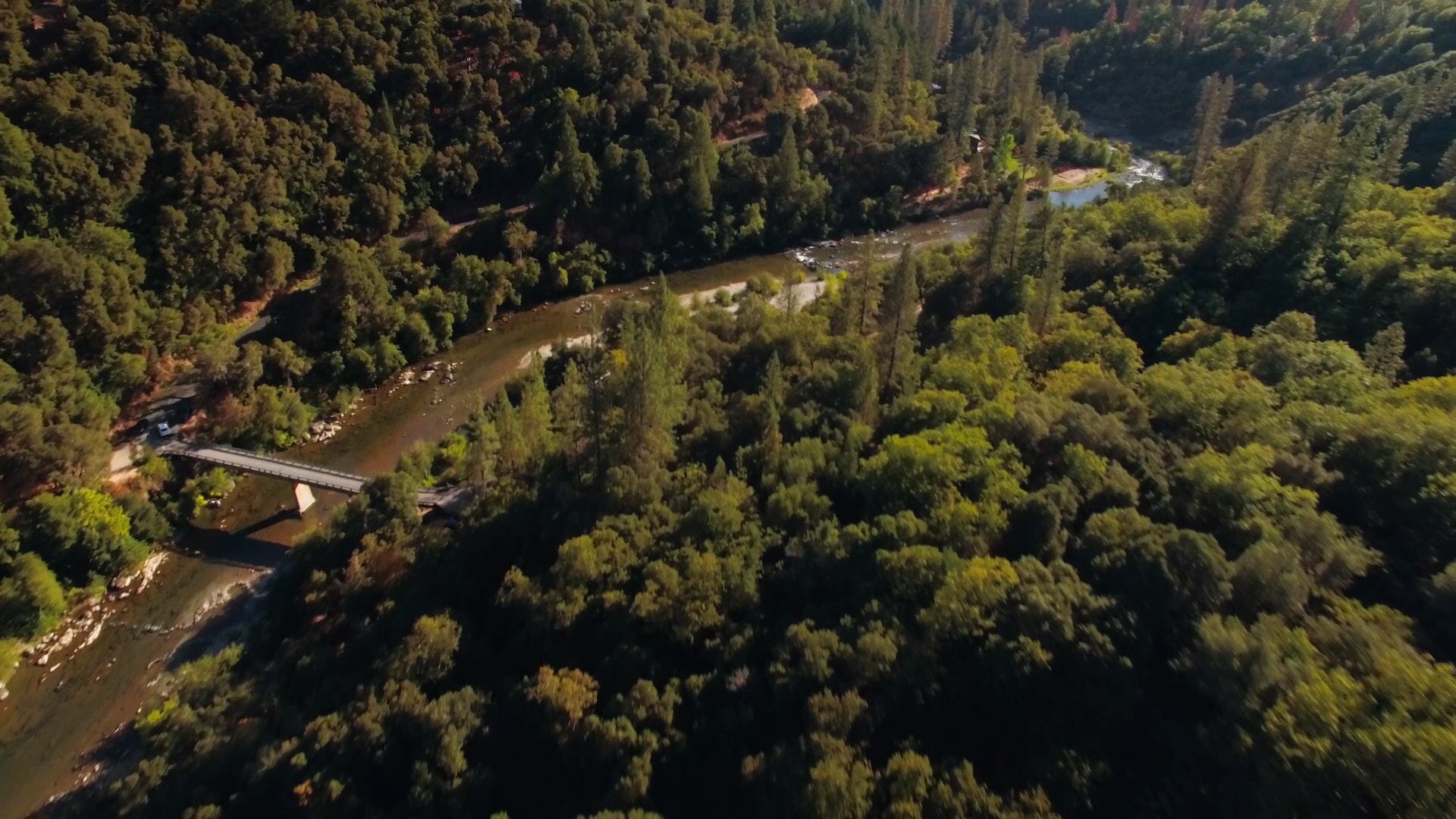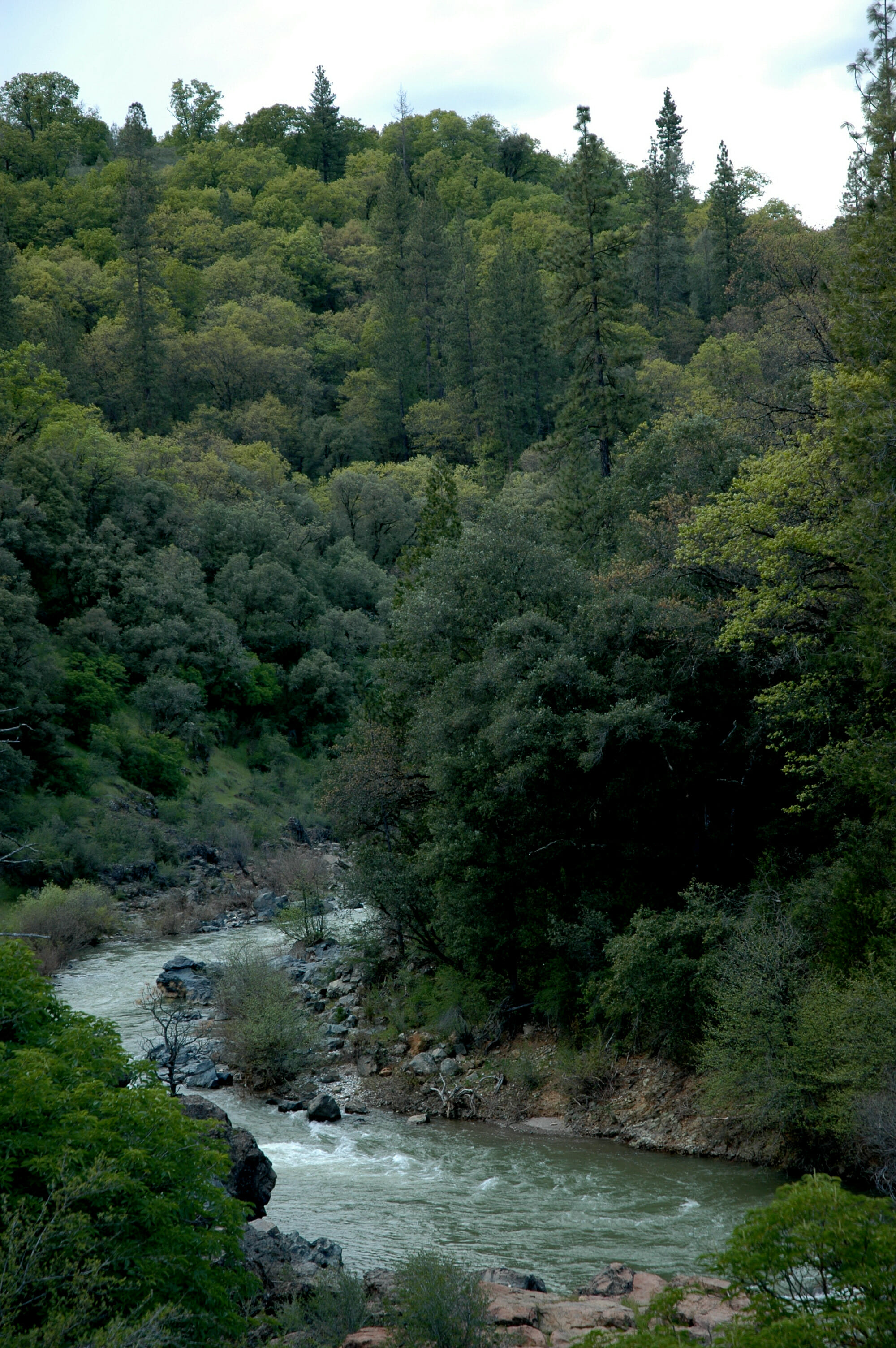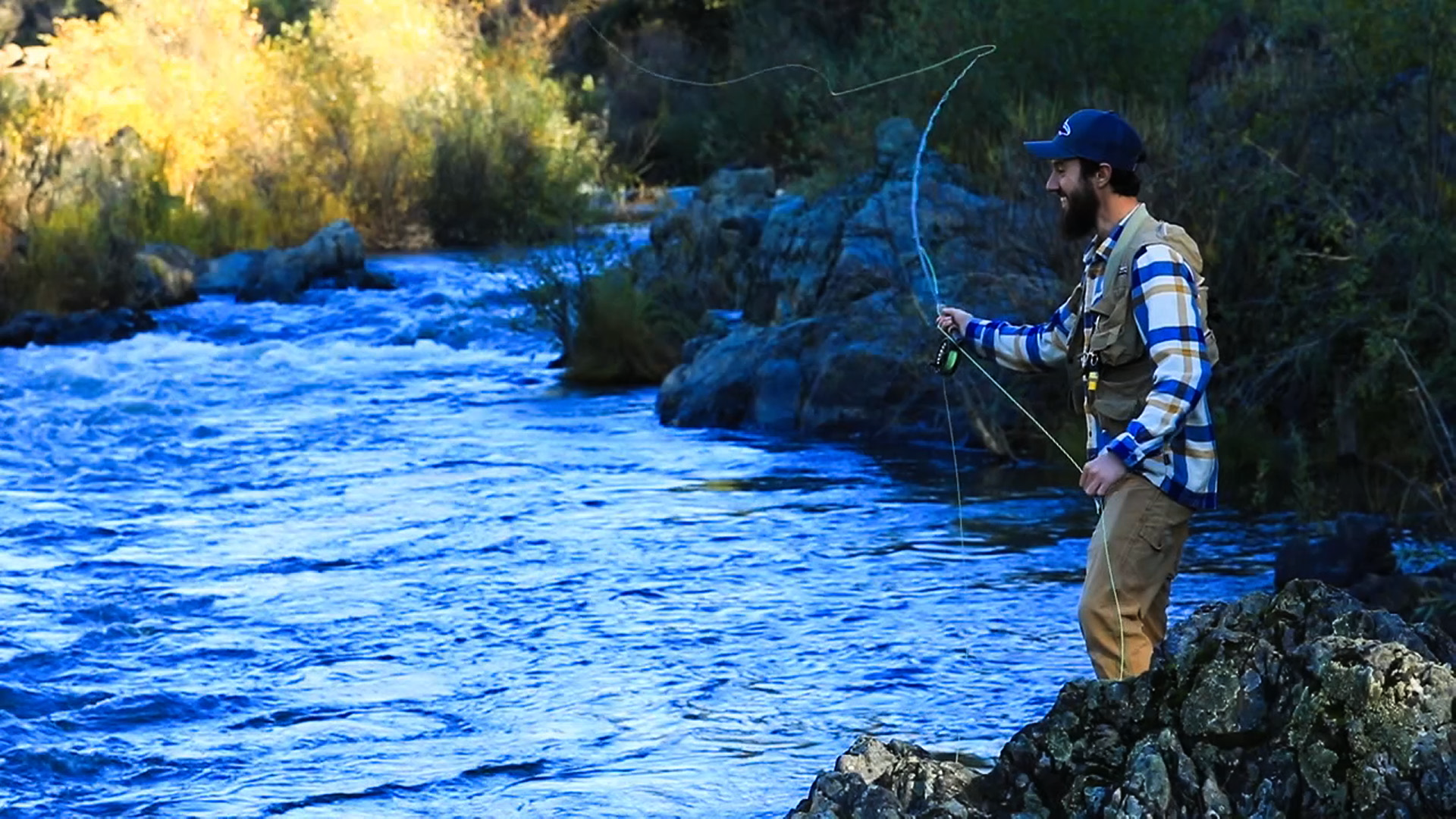Fishing the Bear River. This reach would be inundated by the proposed Centennial Dam.
By Chandra Ferrari
With California just emerging from five years of punishing drought, there continues to be a lot of discussion about creating more
water storage. While the fastest and most affordable way to capture and store more water is to better utilize groundwater capacity, a number of new dam projects are being considered.
One of these has largely flown under the radar: the proposed Centennial Dam on the Bear River. The Bear is the smallest major tributary to the Feather River, a vital Central Valley salmon and steelhead fishery, and offers excellent trout fishing from its origins in the Tahoe National Forest to Camp Far West Reservoir.
 alt=”” title=”” />(L) Dog Bar Bridge, Bear River — this area would be inundated by the Centennial Dam.
alt=”” title=”” />(L) Dog Bar Bridge, Bear River — this area would be inundated by the Centennial Dam.
The sponsor of this project, Nevada Irrigation District (NID), proposes to construct the Centennial Dam on a free-flowing stretch of the Bear River near the town of Colfax and, in water law parlance, achieve a water-rights position senior to chronologically senior projects on the river. Centennial Dam has the potential to impact salmon, steelhead and sturgeon downstream of Camp Far West, including rearing habitat, by altering the hydrologic and water quality conditions in the Bear, Feather, and Sacramento Rivers and the Bay-Delta estuary.
For these reasons the Bear River has been rated one of the most endangered rivers in the country for 2017, in an annual report from American Rivers.
TU and a variety of conservation partners under the banner of the Foothills Water Network have been working together to analyze this project, and have come up with an extensive suite of actions and strategies which would eliminate the need for NID to build a major new dam on the Bear River. Twenty-three conservation and recreational groups as well as local community leaders contributed to a formal comments letter, submitted on April 10, 2017, on the Army Corps’ Notice of Intent to Prepare a Draft Environmental Impact Statement for the Centennial Reservoir Project.
Read more about this Project here, and the Foothills Water Network comments letter here: title=”application/pdf” />FWNCentennialNOI_Comments_Final as filed.pdf
This letter argues that Project proponents are legally required to consider more cost-effective and environmentally protective means to achieve Project goals, and seeks more information from NID and the Army Corps regarding the costs and benefits of constructing the Centennial Dam.
 alt=”” title=”” />(R) Another reach of the Bear River that would be inundated by Centennial Dam.
alt=”” title=”” />(R) Another reach of the Bear River that would be inundated by Centennial Dam.
Previously, TU helped identify environmental, public interest, and legal issues associated with the proposed Centennial Dam, and was a lead author of comments on the Notice of Preparation document (initiates the environmental review process) and a water rights protest to the State Water Resources Control Board (SWRCB) requesting that the NID water rights application for the proposed dam be denied. The proponents of Centennial Dam are seeking public funding to construct the project despite failing to prove claims that the dam will help address environmental and water management challenges. Additionally, they have taken steps to avoid regulatory scrutiny by delaying construction of planned power facilities to obtain an exemption from Federal Energy Regulatory Commission licensing proceedings.
The Centennial Dam project would harm fish and wildlife resources and recreational opportunities in the Bear, Feather and Yuba rivers and could negatively impact local communities. As California considers new storage solutions to help meet our water management challenges, we should focus on those projects that deliver “smarter, cheaper, faster” benefits. The proposed Centennial Dam does not do so. We urge the thoughtful consideration of more cost-effective and environmentally protective alternatives to achieve this Project’s goals.
Chandra Ferrari is TU’s California Water Policy Director.



